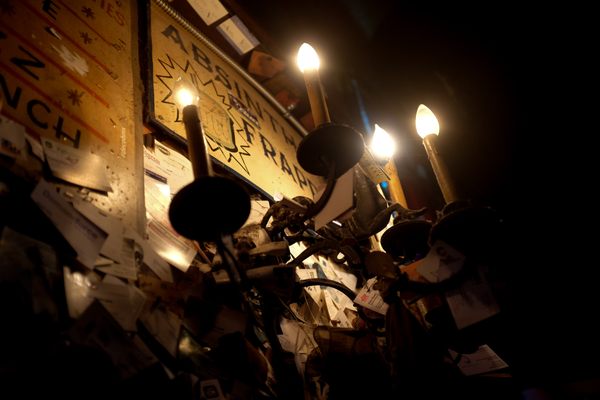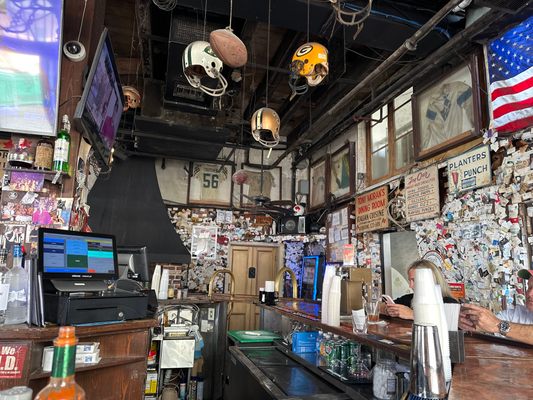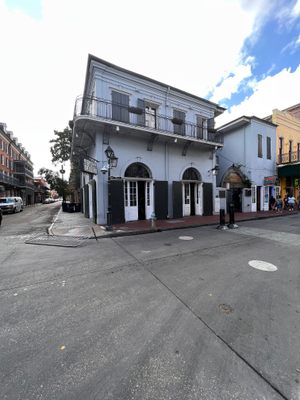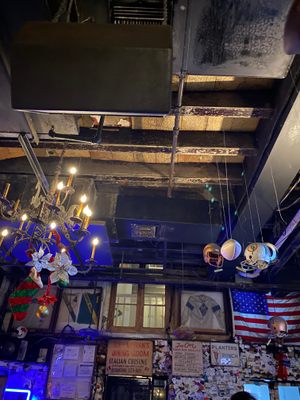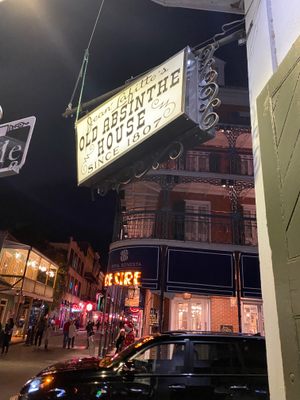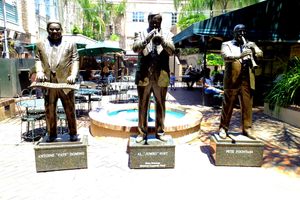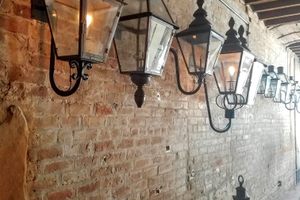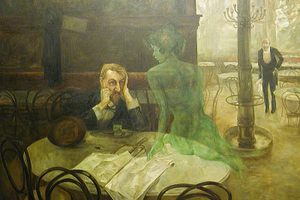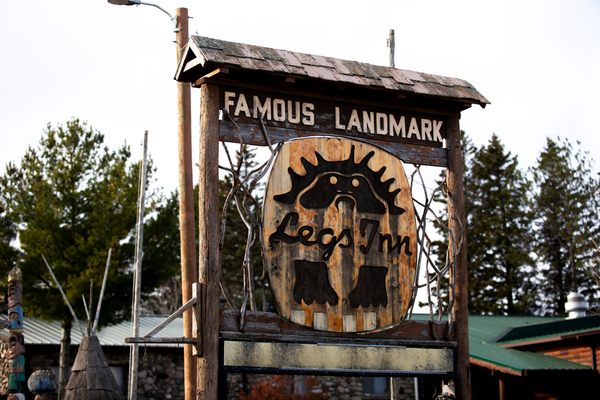About
You'd imagine the gazes were steely, the voices firm. Two men, each accustomed to commanding troops—one a leader of outlaws, the other a decorated army general—were now trying to gain the upper hand in a negotiation that would undoubtedly play a massive role in the future of the United States. In a bar. On Bourbon Street.
The outlaw was Jean Lafitte, a pirate operating out of the Gulf of Mexico who had recently suffered a defeat at the hands of the United States Navy, losing several of his ships to the government in the process. The general was Andrew Jackson, who had come to New Orleans to prepare the city for its critical role as the final battleground in the War of 1812, and found it woefully unprepared. In a turn of true irony, Lafitte's ships sat empty in the harbor, without enough skilled sailors to man them.
Jackson had come to the second floor of The Old Absinthe House—then an importing firm, in the heart of the city's French Quarter—to ask Lafitte if he would help man his ships and fight against the invading British forces. The bare brick walls and raucous street outside were obvious reminders that Jackson was in Lafitte's territory now.
Lafitte demanded full pardons for him and any of his men who participated in the battle. Jackson quickly agreed, and the game was afoot. Three weeks later, Lafitte's men and their unparalleled artillery skills easily repelled the British fleet as it advanced up the Mississippi River—their last attempt to gain a foothold on American soil—and effectively ended the War of 1812.
Two hundred years later, The Old Absinthe House stands almost exactly as it did that night, but with hundreds of more claims to fame and history. Numerous celebrities have passed through its doors and left their mark, whether by photo, autograph, or the traditional attachment of a business card to the wall, which is lined with thousands of others. But the most famous thing in the building is the bar itself.
By 1920, the bar was so iconic that plans were made to destroy it at the beginning of prohibition as a symbolic end to the reign of alcohol. But anything with a life and history of its very own can withstand the fleeting whims of culture, and it did. The legendary bar was secretly uprooted and moved to a warehouse overnight for safekeeping, and The Old Absinthe House remained standing, though obviously no longer a tavern.
Today, the interior of the building has the same musty brick walls, the same ornate wooden fixtures, and the same water-dripping fountains for serving absinthe as it did when a pirate and a general passed through its doors to discuss their plans to secure a nation's future.
Reopened in 2004 bearing Jean Lafitte's name to pay homage to its historic roots, it may be a strange change of pace from the superficial glitz of modern-day Bourbon Street, with its sunburned partiers, plastic drink cups, and the blended sugary drinks that fill them. Despite that—or perhaps because of it—it remains an indelible icon, an ever-present reminder of the French Quarter's place in history, and it will endure.
Related Tags
Know Before You Go
The bar is open from 9:00 a.m. to 4:00 a.m. every day.
Community Contributors
Added By
Published
November 4, 2013

